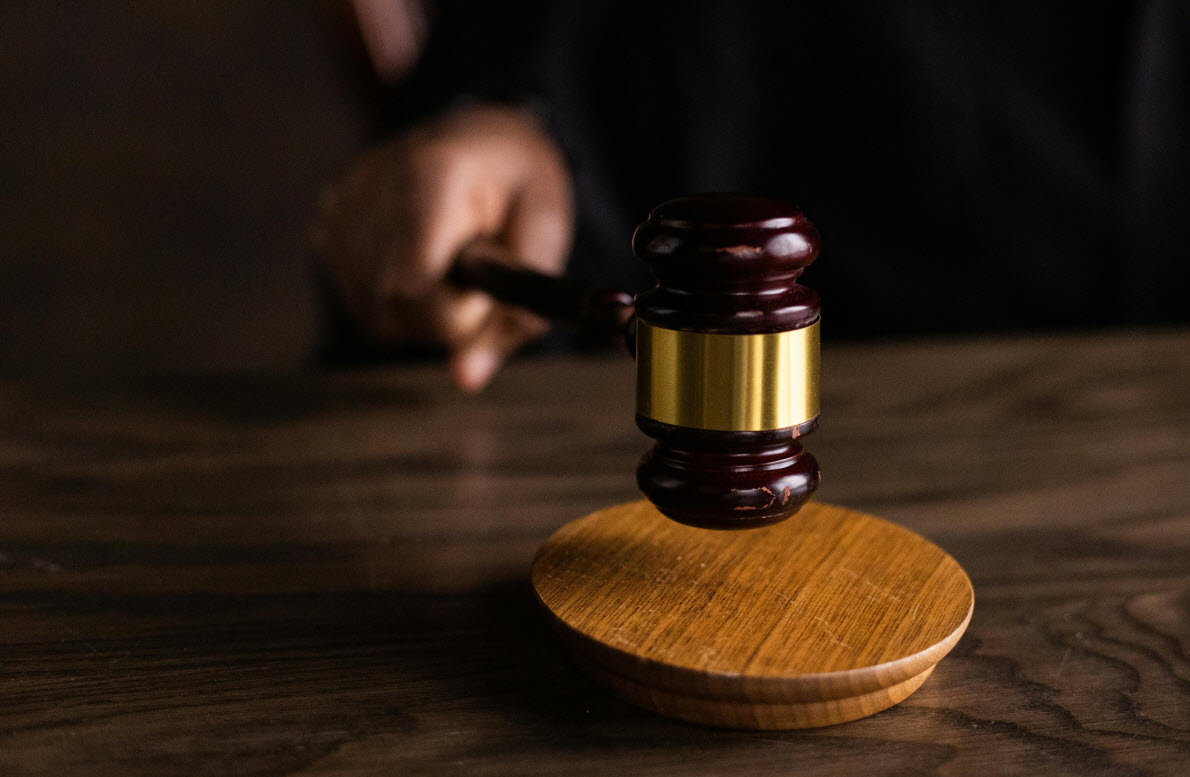Common Disputes and Resolution Methods in Real Estate Law
Real estate law includes all legal regulations related to the purchase, sale, lease, use and ownership rights of immovable property. This branch of law is of great importance for both individuals and business entities, as real estate constitutes one of the most valuable assets in society. However, many legal disputes can also arise in relation to the ownership and use of real estate. Lease agreements, partnership relations, unauthorized use of immovable property are common problems in real estate law.
Each type of dispute gives rise to different rights and obligations between the parties and these lawsuits can be brought to protect the rights of the parties. The most common lawsuits in real estate law are lease disputes, partnership disputes, dispossessory actions and actions for the prevention of seizure. Each of these actions aims to protect certain rights related to immovable property. However, each type of litigation requires different legal processes and there are important legal regulations that will determine the rights of the parties in each case.
In real estate law, courts generally regulate the rights and obligations of the parties, with a particular focus on issues related to the use, division and purchase and sale of real estate. In this context, real estate law secures the rights of both owners and tenants and helps to eliminate legal uncertainty in society.
Lease Disputes (Eviction and Rent Determination Cases)
Lease agreements regulate the relationship between the lessee and the landlord and determine the rights and obligations of the parties. However, from time to time, the content or terms of the lease agreement may cause disputes between the parties. The most common lease disputes arise in matters such as eviction of the tenant and determination of the rent. These cases, in particular, can undermine the trust between the tenant and the landlord and lead to protracted legal proceedings.
Eviction Cases
Eviction proceedings are usually brought in cases where the tenant has breached the terms of the contract or the lease has expired. The tenant is usually obliged to vacate the property after a certain period of time. However, in some cases, the tenant may not want to leave the immovable property or may put forward a reason not to leave. In such cases, the landlord may file an eviction lawsuit and demand the tenant to leave the property. Eviction cases are brought to court in cases where the tenant’s right to use the immovable property has expired or is legally required to be evicted.
In eviction proceedings, the rights of the landlord and the tenant are carefully examined. For example, the court may take into account whether the tenant has the possibility to reside elsewhere or whether the tenant needs to continue to live in the immovable for some reason. Therefore, in eviction cases, it may not be enough for the contract to be terminated; the tenant must start living elsewhere or the right to use the immovable property must end. The court makes a decision by taking these circumstances into account.
If the landlord who has filed an eviction case fails to evict the tenant, he/she may, on the basis of a court order, request a forced eviction. However, forced eviction can only be carried out with a court order and in accordance with legal procedures. The rights of the tenant must be protected throughout the eviction process and the tenant must be given time to leave the property.
Rent Determination Cases
The determination of the rental price is an issue that directly affects the relationship between the lessee and the landlord. When the lease agreement expires or there are changes in the tenant’s ability to pay, the parties may need to re-determine the rent. Rent determination cases are filed in such cases and the court makes a decision according to the demands of the parties.
The determination of the rental price becomes especially important when economic conditions change and the value of real estate increases. It is possible for the tenant to request an increase or decrease in the current rental price. Similarly, landlords may request a higher rental price. However, factors that should be taken into account in determining the rental price include comparable rental prices in the region where the immovable is located, the physical condition of the immovable and market conditions.
During a rent assessment case, the court takes into account local market conditions and comparable rental rates. Considering the balance between the tenant and the landlord, it proposes a solution that protects the rights of both parties. In rent assessment cases, a fair rent is determined by taking into account the tenant’s ability to pay and the owner’s demands.
Dispossession of Partnership and Pre-emption Cases
Immovable property can sometimes be jointly owned by more than one person. In this case, partnership relations may give rise to disputes over time. The lawsuits for dissolution of partnership and pre-emption are filed in order to resolve the legal problems that arise in such cases.
Partnership Elimination Cases
A lawsuit for dissolution of partnership is filed in cases where an immovable property is shared by more than one person and there are disputes between these stakeholders. Over time, the partnership may lead to problems in managing or sharing the immovable property. In this case, if disputes arise between the stakeholders, the partnership can be eliminated by means such as putting the immovable property up for sale or transferring the shares. The dissolution of the partnership is important for the protection of both the owners and the value of the immovable property.
A lawsuit for dissolution of partnership can also be filed if one of the shareholders does not accept the rights of the other shareholder on the immovable property. The court may offer a solution by determining the value of the immovable property, sharing this value or selling the immovable property. Each of the stakeholders may receive their share of the value or the property may be divided. However, the court may also decide how the use of the immovable property should be regulated.
A lawsuit for dissolution of partnership can be filed in order to solve the problems arising during the use of an immovable property in partnership. The court proposes the most appropriate solution, taking into account the demands of the stakeholders. When the partnership is not resolved in time, the management of the immovable property can become even more complicated, so applying to the court is an important step in achieving a solution.
Pre-Take Cases
Pre-purchase is the right of property owners to buy their property before it is sold to others. If a stakeholder intends to sell his/her immovable property, other stakeholders have the right to buy this immovable property first. This right prevents an unfair sale between stakeholders and allows owners to have more say over the immovable property.
The right of pre-emption becomes more important in cases where the value of the immovable property increases and the interest of buyers is intense. In such cases, the court will issue a decision to help stakeholders exercise their pre-emption rights. If one stakeholder wants to sell the immovable property, the other stakeholders have the right to buy the immovable property at the price determined.
Stakeholders who file a pre-emption lawsuit may file claims to acquire the immovable property under the previous conditions. The court first assesses whether the pre-emption right has been exercised. If the other shareholders do not exercise this right, the immovable property can be sold out.
Ecrimisil and Prevention of Seizure Cases
Unauthorized use of immovable property is an important problem of real estate law. Ecrimisil and prevention of encroachment lawsuits are filed to protect the rights of property owners over their immovable property.
Ecrimisil Cases
Ecrimisil is the unauthorized use of an immovable property by others. In this case, the owner of the immovable property may file a lawsuit against the unauthorized user and demand to stop the use. Ecrimisil lawsuits can also be filed for the compensation of the damages suffered by the owner of the immovable property as a result of unfair use.
Ecrimisil lawsuits arise especially in cases where the tenant’s right to use the immovable has expired and the tenant continues to use the immovable without permission. The owner may file a lawsuit to stop the unauthorized use of the immovable and to ensure that it is restored.
Ecrimisil lawsuits can apply to any material or area used without the permission of the owner of the immovable property. The court may rule in favor of the owner of the immovable property and stop the unauthorized use.
Prevention of Seizure Cases
Encroachment is the unauthorized occupation of an immovable property. This constitutes an infringement of the property rights of the owner of the immovable property and a lawsuit for prevention of seizure can be filed in order to end the illegal occupation. The court may grant the occupier a certain period of time to vacate the immovable property and, if necessary, forcibly remove him/her from the immovable property.
The lawsuit for the prevention of seizure helps to protect the property right of the owner of the immovable property. This lawsuit against the occupier is filed with the aim of returning the immovable to its owner. The court decides in favor of the owner of the immovable property and ensures the end of the occupation.
An action for prevention of seizure can be brought not only in the case of unauthorized use of the immovable property, but also in the case of a decrease in the value of the immovable property or its alteration without the owner’s consent.
Real estate law is not limited to disputes between landlords and tenants, but also covers a wide range of other legal issues related to the transfer, division and transactions on real estate
Equity and Mortgage Problems in Real Estate Sales
Real estate sales are one of the most complex and important transactions in real estate law. Legal problems that may arise in these sales may lead to consequences that may bind the parties for a long time. During the transfer of immovable property, disputes between the parties may result in the sale being deemed invalid, loss of mutual trust between the buyer and seller, or damage to the rights on the property. In this context, the validity of the sale of immovable property depends on many factors such as the consent of the parties, title deed procedures and transfer of ownership.
The sale of an immovable property requires both parties to fulfill their obligations. The seller is obliged to deliver the immovable property in the specified conditions and the buyer is obliged to pay the sale price. However, sometimes in a sale transaction, circumstances may arise where the conditions between the buyer and seller are not fully fulfilled. For example, missing documents or disagreements between the parties during title deed procedures may lead to the cancellation of the sale.
In addition, previous mortgage transactions on immovable properties may constitute an obstacle to the sale. A mortgage is established on the immovable property as collateral for a debt, and if the debt is not paid, the creditor may foreclose on the mortgaged property. In the sale of immovable property, the presence of mortgages may worry the buyer and lead to a prolonged sale process. In such cases, the transfer of ownership between the parties should be carried out in accordance with legal regulations.
In order to avoid problems during the sale process, the parties should seek legal advice and carefully review the contracts. In addition, before starting title deed procedures, it should be checked whether there is any mortgage or debt on the immovable property.
Expropriation and Expropriation Fee Cases
Expropriation is the process by which the state or public legal entities acquire privately owned immovable property by force and payment of a price in accordance with the public interest. Expropriation is often necessary for large-scale public projects such as infrastructure projects, road construction or energy production. This process can limit the property rights of real estate owners and can sometimes lead to major controversies.
The expropriation price is determined according to the market value of the immovable and paid to the property owner. However, the expropriation price may not always reflect the real value of the immovable, which may lead to victimization of the property owner. Property owners who believe that the expropriation price is insufficient may apply to the court and request an increase in the price. Such lawsuits are important to ensure that expropriation proceedings are carried out in a fair and legal manner.
Expropriation compensation lawsuits are generally related to the determination of the value of the immovable property and payment based on this value. However, sometimes disputes may arise between the public institution and the property owner during the expropriation process. The real value of the immovable property is determined by expert witnesses and the expropriation price is calculated based on this value. If the property owner thinks that the proposed price is insufficient, he/she can apply to the court and request an increase in this price.
Although expropriation is a public interest transaction, it constitutes an important intervention in terms of property rights. Therefore, in expropriation cases, a legal arrangement should be made to protect the rights of the state or public legal entities on immovable property.
Construction Law and Construction Contracts
The construction sector is one of the largest and most dynamic areas of the real estate market. Construction projects require large investments and many legal issues may arise during these projects. Construction contracts are agreements between contractors, contractors, suppliers and employers, and the legal validity of these contracts is of great importance. Among the most common legal problems encountered in construction projects are non-completion of construction, quality problems and breach of contract.
Construction contracts cover the process from project inception to delivery and specify all rights and obligations of the parties. Disputes between the parties are often associated with situations such as prolonged project duration, non-completion of the work or quality issues of construction materials. In such cases, the terms of the construction contract and legal responsibilities should be clearly defined.
In construction projects, if the contractor or the employer fails to fulfill its obligations, compensation lawsuits may be filed between the parties. In addition, cases such as termination of the construction contract or extension of the project duration can also be brought to court. Construction law is an important area that protects the rights of the parties at every stage of the construction process and it should be remembered that the parties must fully comply with the provisions of the contract.







